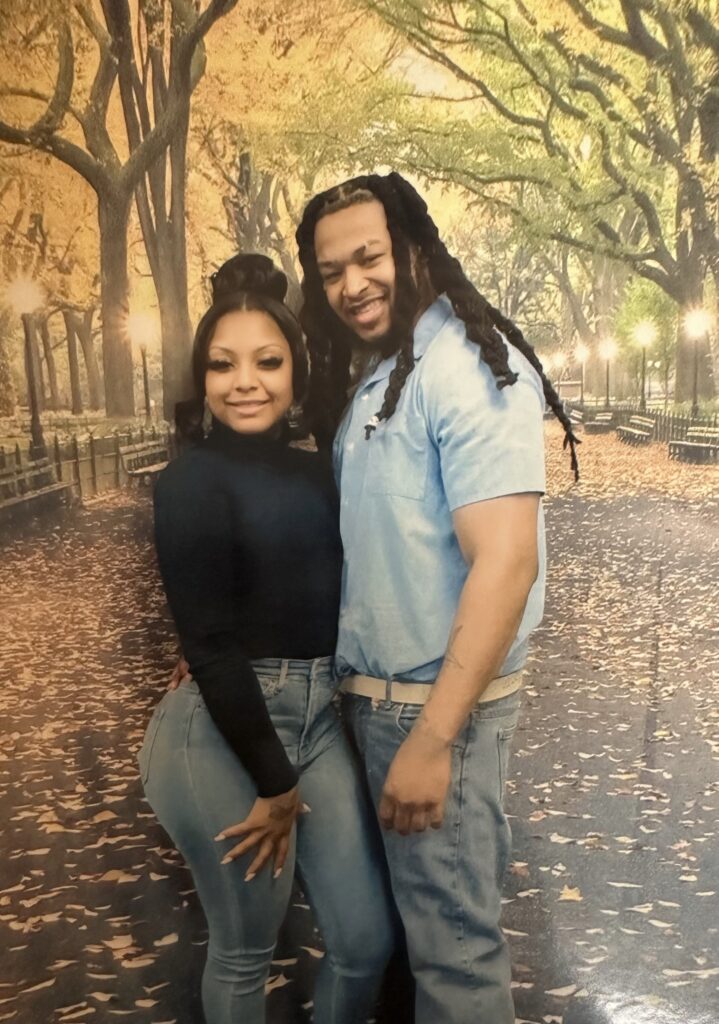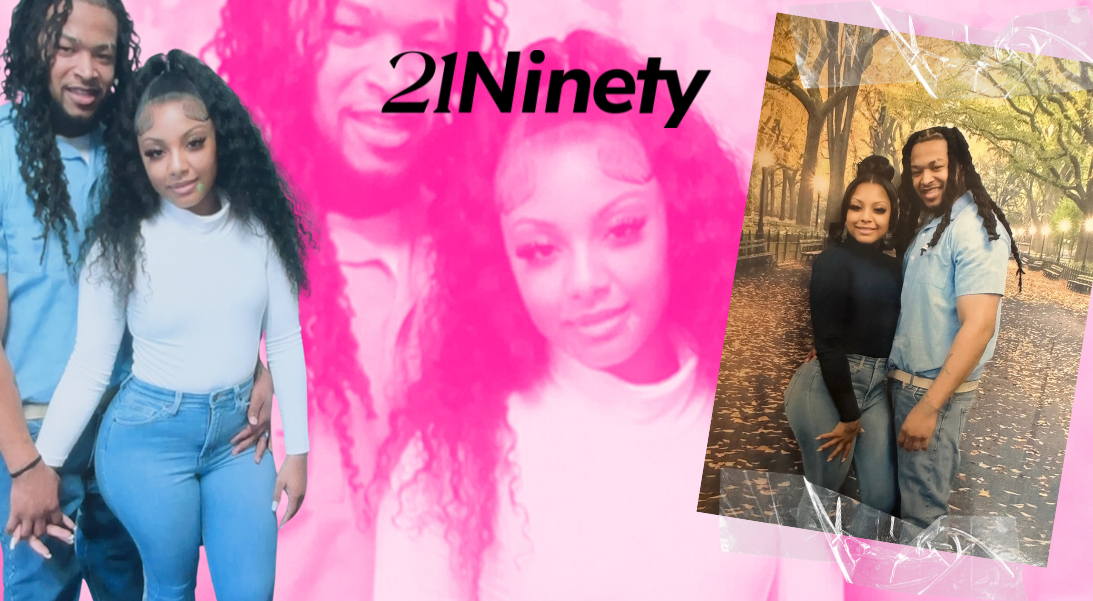Love is one of the most profound human experiences. Yet, when incarceration enters the equation, love can transform into a test of resilience and patience. With over 2.2 million people incarcerated in the United States—the largest prison population in the world—many couples are navigating the complexities of maintaining a relationship despite bars and boundaries. Research shows that nearly 45 percent of incarcerated individuals report being in a romantic relationship.
The strain of loving someone who is behind bars is undeniable. Studies have shown that incarceration can lead to decreased marital love, increased relationship violence, and higher odds of extramarital affairs, contributing to marital dissolution. Despite these challenges, some couples emerge stronger, rewriting the narrative of love’s endurance in the face of systemic obstacles.
Montreanna and Manny Culbreath’s love story began long before incarceration, but it has been redefined by the realities of their current situation. Through faith, therapy, and a deep commitment to each other, they’ve built a bond that not only survives but thrives. Their journey offers a glimpse into the reality of Black love behind bars.
A Love Rekindled
Montreanna and Manny’s love story began in high school, where Manny’s humor and thoughtfulness captured Montreanna’s heart. Over time, life led them down separate paths. There were relationships with others, children, and eventually, Manny’s incarceration. Yet, fate brought them together again after nine years apart. Their reunion marked the beginning of a profound journey toward unconditional love and unwavering commitment.
Montreanna and Manny’s story is not unique. A significant number of individuals who are incarcerated are in committed relationships. While there isn’t a precise figure, research from organizations like the Marshall Project suggests that thousands of couples maintain relationships despite the strain of incarceration. However, the odds are not always in favor of these partnerships. There are unique challenges such financial strain, emotional distance, societal judgment, and high levels of stress. Despite these difficulties, Montreanna and Manny’s story is a testament to the possibility of a successful relationship.
Love Through the Bars

For Montreanna, consistency and communication are the key to maintaining their connection.
“We have video calls regularly, and I make sure to do all eight visits allowed each month,” she shared.
These moments of connection are not just logistical—they are lifelines, keeping their relationship alive and thriving.
Other couples in similar situations rely on handwritten letters, daily phone calls, and even creative tokens of love, like shared books or playlists, to bridge the gap. Montreanna’s favorite gesture from Manny is when he sends her clothes, allowing her to feel close to him despite the distance.
No relationship is without its struggles, but incarceration amplifies them. Montreanna admits that there have been moments of doubt and strain.
“We always turn to God and each other for strength. Our challenges are deeply significant, but we need to work through them together,” she said.
Therapy has also been a vital part of their journey. By addressing past traumas and childhood wounds, the couple has fortified their bond against external pressures and internal insecurities. Montreanna believes growth and healing are essential for any relationship, especially one facing such immense challenges.
Building a Community
One of the most profound aspects of Montreanna’s story is her decision to create a community for women in relationships with incarcerated individuals through her social media platforms.
“I built a community of women and over time, we’ve developed a supportive group that truly meets the needs of those seeking connection,” she shared. “I’ve noticed that many existing groups and resources for women can sometimes be judgmental, even when they share similar experiences, and I believe peace and support should always come first.”
Her group provides a safe space for women to connect, share experiences, and support one another without judgment.
“We’re often judged just for loving someone who may have made mistakes in the past,” she explained.
Montreanna’s journey has reshaped her views on love, trust, and commitment. She believes in the power of choosing happiness, even when it doesn’t align with societal norms.
“A lot of people don’t fully grasp the concept of unconditional love,” she expressed.
For Montreanna, this means standing by Manny, building a life together, and rejecting the judgment of others.
For Black couples navigating incarceration, Montreanna and Manny’s resilience is a beacon of hope. Though their love may have faced physical barriers, their connection remains strong.
Montreanna’s advice to others in similar situations is simple.
“Keep God first and don’t let others discourage you. The only voices that truly matter are God’s and your spouse’s,” she said.
